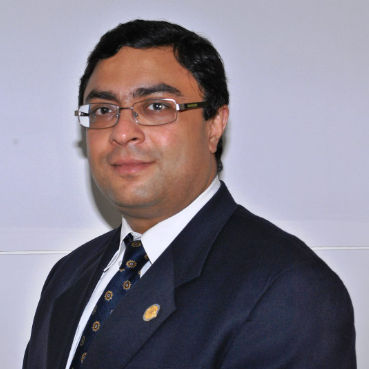Nonstress Test Procedure and Expectations
Know about nonstress test, what it is, why it is done, procedure, result analysis and how to get a smooth NST.

Written by Dr. Md Yusuf Shareef
Reviewed by Dr. Rohinipriyanka Pondugula MBBS
Last updated on 13th Jan, 2026

Introduction
If you're pregnant, your doctor may recommend a Nonstress Test (NST) to check your baby’s well-being. This simple and painless test helps ensure that your baby is getting enough oxygen and is active and healthy. If you're feeling nervous or unsure about what to expect, don’t worry, this guide will walk you through everything in a simple, reassuring way.
What Is a Nonstress Test (NST)?
A Nonstress Test (NST) is a common prenatal test that monitors your baby’s heart rate in response to their movements. Unlike some other tests, it’s called "nonstress" because it doesn’t put any stress on your baby; it simply observes their natural activity.
Consult a Gynaecologist for Personalised Advice
Why Is an NST Done?
Your doctor may recommend an NST if:
- You have a high-risk pregnancy (e.g., diabetes, high blood pressure).
- You’re past your due date.
- You notice reduced fetal movements.
- There are concerns about the baby’s growth or the placenta's function.
This test helps doctors detect any potential issues early so they can take necessary actions.
What to Expect During the NST Procedure
1 .Before the Test
- No special preparation is needed. You can eat normally before the test.
- Try to stay relaxed. Stress can sometimes affect the baby’s movements.
- Wear comfortable clothing since you’ll be lying down for about 20-40 minutes.
2. During the Test
- You’ll lie down on a comfortable bed, usually slightly tilted to one side to improve blood flow.
3. Two belts with sensors will be placed on your belly:
- One measures the baby’s heart rate.
- The other tracks' contractions (if any).
3. You’ll hold a small button to press every time you feel the baby move.
4. The test lasts 20-40 minutes, depending on how active your baby is.
What Does the Test Check?
The machine records:
- Baby’s heart rate (normal range: 110–160 beats per minute).
- Heart rate accelerations (increases when the baby moves, a good sign).
- Variability (small changes in heart rate, indicating a healthy nervous system).
Possible Results
- Reactive (Normal): Baby’s heart rate increases with movement at least twice in 20 minutes.
- Nonreactive (Needs Further Testing): If the baby isn’t moving much or the heart rate doesn’t increase, your doctor may
recommend additional tests like a Biophysical Profile (BPP) or Contraction Stress Test (CST).
Tips for a Smooth NST Experience
The tips for a smooth NST experience include:
- Eat or drink something sweet (like juice) before the test to encourage baby movements.
- Go to the bathroom beforehand so you’re comfortable during the test.
- Stay relaxed—listen to music or read a book if it helps.
When to Call Your Doctor
If you notice decreased fetal movements before your scheduled NST, contact your doctor immediately.
Final Thoughts
An NST is a safe, noninvasive, and important way to ensure your baby is doing well. If your doctor has recommended it, there’s no need to worry—it’s just a precaution to keep you and your little one healthy.
Consult a Gynaecologist for Personalised Advice
Consult a Gynaecologist for Personalised Advice

Dr. Sreeparna Roy
Obstetrician and Gynaecologist
8 Years • MBBS , MS (OBSTETRICS & GYNAECOLOGY), Fellowship in Infertility, Endoscopy & Ultrasonography), Fellowship in Laparoscopy & Hysteroscopy,DRM
Kolkata
Dr Utsa Basu Clinic, Kolkata

Dr. Revathi S Rajan
Obstetrician and Gynaecologist
24 Years • MBBS, DGO, DNB.FFMM
Bengaluru
Apollo Clinic, JP nagar, Bengaluru

Dr. Sushith C
General Physician
2 Years • MBBS
Bengaluru
PRESTIGE SHANTHINIKETAN - SOCIETY CLINIC, Bengaluru
Dr. B Shravanthi Reddy
Radiation Specialist Oncologist
8 Years • MBBS, DNB(Radiation Oncology)
Manikonda Jagir
Apollo Clinic, Manikonda, Manikonda Jagir

Dr Shaikat Gupta Director Surgical Onco
Surgical Oncologist
35 Years • MBBS (University Gold Medalist), MS, FRCSEd
Kolkata
Apollo Multispeciality Hospitals , Kolkata, Kolkata
(250+ Patients)
Consult a Gynaecologist for Personalised Advice

Dr. Sreeparna Roy
Obstetrician and Gynaecologist
8 Years • MBBS , MS (OBSTETRICS & GYNAECOLOGY), Fellowship in Infertility, Endoscopy & Ultrasonography), Fellowship in Laparoscopy & Hysteroscopy,DRM
Kolkata
Dr Utsa Basu Clinic, Kolkata

Dr. Revathi S Rajan
Obstetrician and Gynaecologist
24 Years • MBBS, DGO, DNB.FFMM
Bengaluru
Apollo Clinic, JP nagar, Bengaluru

Dr. Sushith C
General Physician
2 Years • MBBS
Bengaluru
PRESTIGE SHANTHINIKETAN - SOCIETY CLINIC, Bengaluru
Dr. B Shravanthi Reddy
Radiation Specialist Oncologist
8 Years • MBBS, DNB(Radiation Oncology)
Manikonda Jagir
Apollo Clinic, Manikonda, Manikonda Jagir

Dr Shaikat Gupta Director Surgical Onco
Surgical Oncologist
35 Years • MBBS (University Gold Medalist), MS, FRCSEd
Kolkata
Apollo Multispeciality Hospitals , Kolkata, Kolkata
(250+ Patients)




